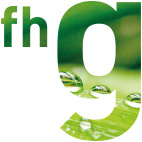Radiology technologists develop X-ray images and operate imaging devices e.g. for computed tomography and magnetic resonance imaging or ultrasound.
Profession and career prospects
What does a career as a radiology technologist entail?
As a radiology technologist you work in an interprofessional setting at the interface between medicine, technology and people, independently perform radiological-technical examinations and treatments in all special fields of radiology technology (radiological diagnostics and intervention, nuclear medicine and radiotherapy-radiooncology) and continuously adapt to developments specific to the profession and scientific developments. In the course of your professional activity, you will produce X-ray images and operate imaging equipment such as CT and MRI scanners or ultrasound devices. You process images of the body's interior by image processing and image analysis providing an important basis for the diagnosis and treatment of diseases.
In the field of radiotherapy, you treat patients with tumour diseases with ionising radiation according to a doctor's orders. In the sub-field of nuclear medicine, you use radioactively enriched medicines for this purpose. As a specialist in radiation and nuclear medicine, you work in a rapidly developing field of medicine.
In addition to the classical fields of work in hospitals, private X-ray practices, outpatient clinics and rehabilitation centres, other areas of practice can include research institutions, industry and veterinary medicine. The job prospects are versatile and promising. You will make valuable contacts with potential employers already during your internship.
Curriculum
What can you expect from the study programme?
The study programme combines technical, socio-communicative, scientific and practical professional contents and conveys the cross-sectional competences that are central to professional success. In addition to teaching the necessary medical, biological, physical and technical basics, the focus is on the specialist fields of radiological technology (radiological diagnostics and intervention, nuclear medicine and radiotherapy-radio-oncology). Radiation protection as well as quality management concern all three specialist areas of radiological technology and are embedded in the curriculum throughout the entire course of study. The continuous sequence of theoretical knowledge acquisition, skills training in the study programme, and the professional internship (radiological technology practice) in external internship locations ensures a continuous and interlocking transfer from theory to practice starting from the first semester.
In addition to the degree, you will receive the additional certificate in breast screening according to the certification programme of RT-Austria.
Within the framework of the study programme, you will develop personal communication strategies for your daily interaction with patients and their relatives. In order to prepare you for your future work in an interprofessional team, you will complete several courses with students from other degree programmes during your studies. That way, you will learn already during your studies how important it is to work together and to look beyond the horizon of your own discipline.
The scientific competences enable you to reflect on current scientific findings, to comprehend them and to integrate them into your everyday professional life, as well as to actively participate in research processes. The programme is concluded with the Bachelor's thesis and the Bachelor's examination.
Practical training
What can you expect from the practical training?
The internships in external institutions (radiological technology practice) consist of 51 ECTS or 1.275 hours to be completed during your 1st, 2nd, 3rd, 5th and 6th semester.
Duration and extent of the practical training:
- 1st semester / 3,5 ECTS / 87,5 hours
- 2th semester / 13,5 ECTS / 337,5 hours
- 3th semester / 7,5 ECTS / 187,5 hours
- 5th semester / 20 ECTS / 500 hours
- 6th semester / 6,5 ECTS / 162,5 hours
The internship is supplemented by accompanying courses.
Take the opportunity to do your practical training abroad with the Erasmus+ Programme.
Degree Programme - an overview
| Profession Radiologic Technologist Degree Bachelor of Science in Health Studies (BSc) Organisational form 6 semester, full-time, 180 ECTS Language of instruction German Number of study places 24 per admission cycle | Tuition fees € 363,36 per semester + contribution to study materials € 88,00 per academic year + Austrian Students´ Union fee ÖH-Beitrag Admission cycle Yearly | Contact Studien-Service-Center Office 3rd floor/room 326 Beate Tholema T +43 512 5322-76710 Send E-Mail Verena Schaffenrath-Mayrhofer T +43 512 5322-76712 Send E-Mail Barbara Harrich T +43 512 5322-76716 Send E-Mail |
